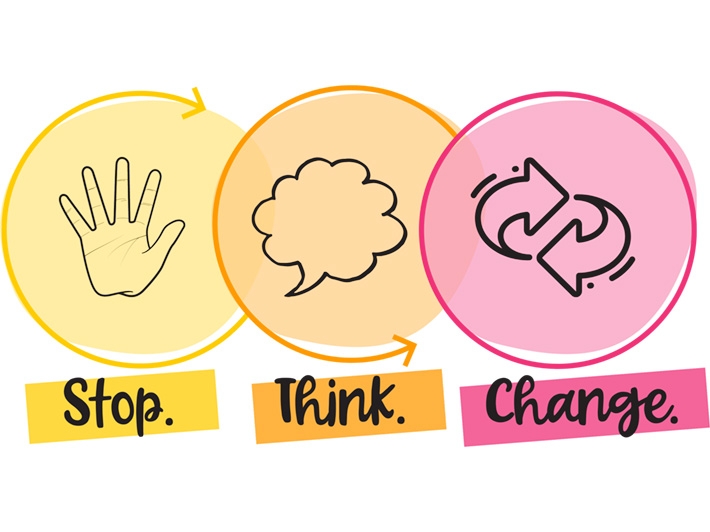Think - activities

We have developed a library of activities for specific elements that the quiz may identify. These can help you think through any issues that you have identified and identify the solutions.
These focus on different areas of your relationship. Use the results from Step 1 (Stop) to identify which ones are the most relevant to you.
Activity 1 - The impact on your child
This activity will help you to identify the impact of your relationship on your child.
Everyone argues at times. When it’s constant or is not dealt with it can build up overtime. This will a have negative impact on your child. Knowing what to look for is important. Alongside ‘The Child’s Viewpoint’ quiz, this activity will help you to consider how much your relationship is impacting on your child.
View activity 1 (PDF - 207.7 KB)
Activity 2 - Your family values
This activity will help you to identify the values that guide you as an individual and a family.
Values are very important in parenting since they deeply influence all behaviours and attitudes and effect our decisions and relationships. For a value to be truly your own, you must act on it and your behaviour must reflect it – not just verbally accept it or think that you should follow it. In this activity you will identify your core family values.
View activity 2 (PDF - 212.29 KB)
Activity 3 - Positive and negative acts: constructive or destructive behaviours
This activity will help you to identify the positive and negative elements in your relationship.
In every relationship, both partners will act in ways in that can be positive (or constructive) for their family and also in ways that are negative (or destructive). During this activity you will think through the moments when you act in these ways – both as an individual and as a partnership.
View activity 3 (PDF - 474.61 KB)
Activity 4 - The break down: The Four Horsemen of the Apocalypse
This activity will help you to understand the four stages that relationships tend to go through when they are breaking down.
The Four Horsemen of the Apocalypse is a metaphor depicting the end of times in the New Testament. In relationships these are described as: Criticism, Contempt, Defensiveness and Stonewalling. Being able to identify them in your relationship is a necessary first step to eliminating them and replacing them with healthy, productive communication patterns.
View activity 4 (PDF - 430.01 KB)
Activity 5 - Weighing the baggage
This activity will help you to think through your past experiences and the impact this is having on you now.
What you do and how you do it is influenced significantly by your past, your childhood and your experiences as an adult. This ‘baggage’ has helped you become the person you are today. Some of it makes you more resilient and others will make you more vulnerable.
View activity 5 (PDF - 612.32 KB)
Activity 6 - Inside of you: Your thoughts, feelings and behaviours
This activity will help you to think about how your thoughts, feelings and behaviours influence your relationship.
It will help you to recognise how you internalise behaviour which in turn affects how you feel, act and respond as an individual and as a partnership. It is built on an understanding that behaviours are shaped by your own thoughts and feelings, and that these can become a cycle, whether positive or negative.
View activity 6 (PDF - 697.94 KB)
Activity 7 - The behavioural iceberg
This activity will help you to consider what is happening ‘below the surface’ which influences how you behave.
The tool is built on the iceberg theory. We know that an iceberg has only 10% of its total mass above the water while 90% is underwater. But that 90% is what the ocean currents act on, and what creates the iceberg’s behaviour at its tip. Personal and relationship behaviours can be seen in the same way.
View activity 7 (PDF - 663.96 KB)
Activity 8 - The five types of communication
This activity will help you to understand how people communicate so you can consider your own style.
Most people think that the primary communication is verbal. But there is so much more going on. Studies have proven that over 90% of communication is not actually what is said. This activity will help you understand the five types of communication and reflect on how these are present in your relationship.
View activity 8 (PDF - 594.73 KB)
Activity 9 - Moving forward
This activity will help you to bring together what you have learnt so far and consider how you move forward.
This stage can be quite difficult. It is focused on identifying what actions you need to take individually and together to move forward. Going through this guide may have brought you closer together as a couple. It may have also led to difficult conversations and a realisation that your relationship may not continue. By agreeing the actions together, you can identify what you each need to do to move forward in your lives.
